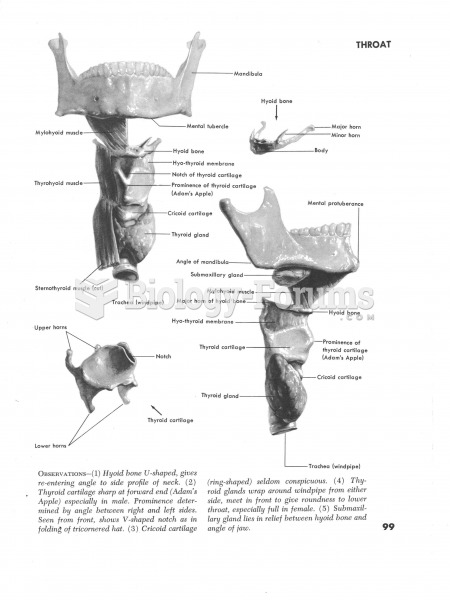|
|
|
Side effects from substance abuse include nausea, dehydration, reduced productivitiy, and dependence. Though these effects usually worsen over time, the constant need for the substance often overcomes rational thinking.
A good example of polar molecules can be understood when trying to make a cake. If water and oil are required, they will not mix together. If you put them into a measuring cup, the oil will rise to the top while the water remains on the bottom.
Drying your hands with a paper towel will reduce the bacterial count on your hands by 45–60%.
The most common treatment options for addiction include psychotherapy, support groups, and individual counseling.
Elderly adults are living longer, and causes of death are shifting. At the same time, autopsy rates are at or near their lowest in history.
 Apply deep circular friction with the fingertips to the erector muscles on the right side, moving ...
Apply deep circular friction with the fingertips to the erector muscles on the right side, moving ...
 Effleurage to forehead. Use the thumbs to stroke the muscles of the forehead, applying effleurage ...
Effleurage to forehead. Use the thumbs to stroke the muscles of the forehead, applying effleurage ...





